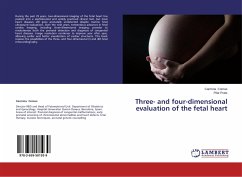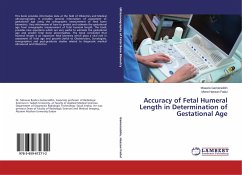During the past 25 years, two-dimensional imaging of the fetal heart has evolved into a sophisticated and widely practiced clinical tool, but most heart diseases still goes prenatally undetected despite routine fetal ultrasound evaluations. Over the next years, tremendous advances in fetal cardiac imaging, including three-dimensional imaging, promise to revolutionize both the prenatal detection and diagnosis of congenital heart diseases. Image resolution continues to improve year after year, allowing earlier and better visualization of cardiac structures. This book reviews the possibilities of the three- and four-dimensional (3 and 4D) fetal echocardiography.
Bitte wählen Sie Ihr Anliegen aus.
Rechnungen
Retourenschein anfordern
Bestellstatus
Storno








